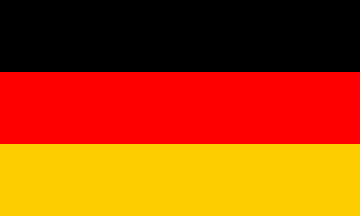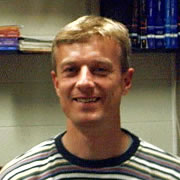Germany
 By Klaus Dehmelt
By Klaus Dehmelt
Until 2001, physics students, who studied at German universities graduated with a Master’s equivalent degree, Diplom-Physiker. Prospective high school physics teachers follow the same course of study and focus on physics-pedagogic issues in their final year. The standard period of study is nominally ten semesters, and is subdivided into a basic study period (Grundstudium) and the main study period (Hauptstudium). The basic study period is completed after four semesters and a comprehensive exam, passage of which allows continuation to the main study period. This second stage generally includes a final year project and a further comprehensive exam. However, the average total length of study is between 12 and 13 semesters.
In 2001 the first program of study for the degree of Bachelor was introduced and nowadays 34 universities in Germany allow studying for that degree within six semesters. Optionally postgraduate studies can be pursued and finished with a Master’s degree. This involves four more semesters, including a final year project.
In Germany, education policy is the responsibility of the 16 federal states with not much influence of the central German government. The states decide if and how much tuition fees will be demanded. Tuition fees vary from €0 (five states) to €500 per semester, in addition to some €50 for administrative purposes. Policy changes are planned for the near future that would result in all states but one imposing tuition fees.
The states provide financial support for students in need (and also for foreign students), in terms of an interest-free loan. The amount of support depends on the level of patrimony of the student, parents, spouses, etc. The maximum amount is €585 per month and is limited to five years.
In order to obtain a doctoral degree at German universities, the student has to hold a Master’s/Diplom-Physiker degree and must be affiliated with a university. The course of study concentrates on research within working groups at universities, institutes, or industry. There is no formal coursework to be completed; however, the student is expected to attend seminars and pursue other advanced training opportunities.
At universities and institutes the salary of a doctoral student amounts to roughly €1500 per month before taxes. In industry the salary can vary significantly. At universities and institutes the doctoral student can be engaged in teaching activities.
The supervision of the doctoral student depends on the size of the working group. Usually the groups consist of students, postdocs, and/or research associates, beside the group leader, who in general is a professor. The larger the workgroup, the lesser the contact to the group leader. However, a doctoral student is at least under the direct supervision of a postdoc.
The duration of the studies is in general three years and can be extended to four years. The study finishes with the defense of the dissertation and is connected with a comprehensive exam.
After successfully finishing the doctoral study the physicist’s title is Dr. rer. nat. (Doctor rerum naturalium), which is the equivalent to Ph.D. If one’s goal is an academic career, a postdoctoral position is almost always pursued.
Until very recently, if a new physicist wants to join the faculty of a German university as a professor, s/he had to peruse a lengthy path of additional post-doctoral training. Accession to professor status was granted only after completion of a qualification phase, a state doctorate, which is called ‘habilitation,’ and after “being called” from the university. The requirement for a habilitation is a successfully completed study in physics, an outstanding conferral of a doctorate, and a scientific successful postdoctoral work, from which a substantial time had to be spent abroad.
Evidence for the scientific successful postdoctoral work has to be given in form of a professorial dissertation. Commonly there will be a presentation of this work in front of a committee and after positive appraisal the formal process of acceptance can be started. In addition the candidate has to prove pedagogical adequacy. This entire process from granting of the doctorate until final approval of professorship can last up to ten years or more.
Only very recently has the German system moved to abandon the ‘habilitation’ model. In 2002 a new policy was adopted intended to introduce a new path to professorship (the ‘Junior-Professor’) beginning in 2010.[1] This model involves a probationary period of professorship, similar to the pre-tenure position of Assistant Professor in the U.S. Under the new system, a physicist who has completed some postdoctoral research may obtain a Junior-Professor position, with an initial term of three years. The Junior-Professor can then pursue his/her scientific career without going through the habilitation process, but with the same status as an academic professor. After the first probation period (three years) an evaluation will be performed in order to judge the scientific and pedagogic capabilities of the physicist. If the evaluation turns out to be positive, the professorship will be extended for another three years and passes through another evaluation process. After those, successfully evaluated six years the physicist can accept a call from a university (i.e., a tenured professorship).
However, in practice the model of the junior-professor in physics couldn’t establish itself as a convincing model up to now. So there will be further discussion about this topic in the next future.
Deutsche Physikalische Gesellschaft (the German Physical Society):
http://dpg-physik.de/
Information about German Universities:
http://www.hochschulkompass.de/
About Physics in Germany:
http://www.kfp-physik.de/kfp/index.htm
http://www.pro-physik.de/Phy/External/PhyH/
German Physics Departments:
http://physnet.uni-oldenburg.de/PhysNet/germany.html
[1] Not only restricted to physics.
 Klaus Dehmelt received his MSc in experimental physics from the University of Hamburg/DESY and is currently working on his PhD research on two-photon physics at the Florida Institute of Technology and with L3/CERN.
Klaus Dehmelt received his MSc in experimental physics from the University of Hamburg/DESY and is currently working on his PhD research on two-photon physics at the Florida Institute of Technology and with L3/CERN.
